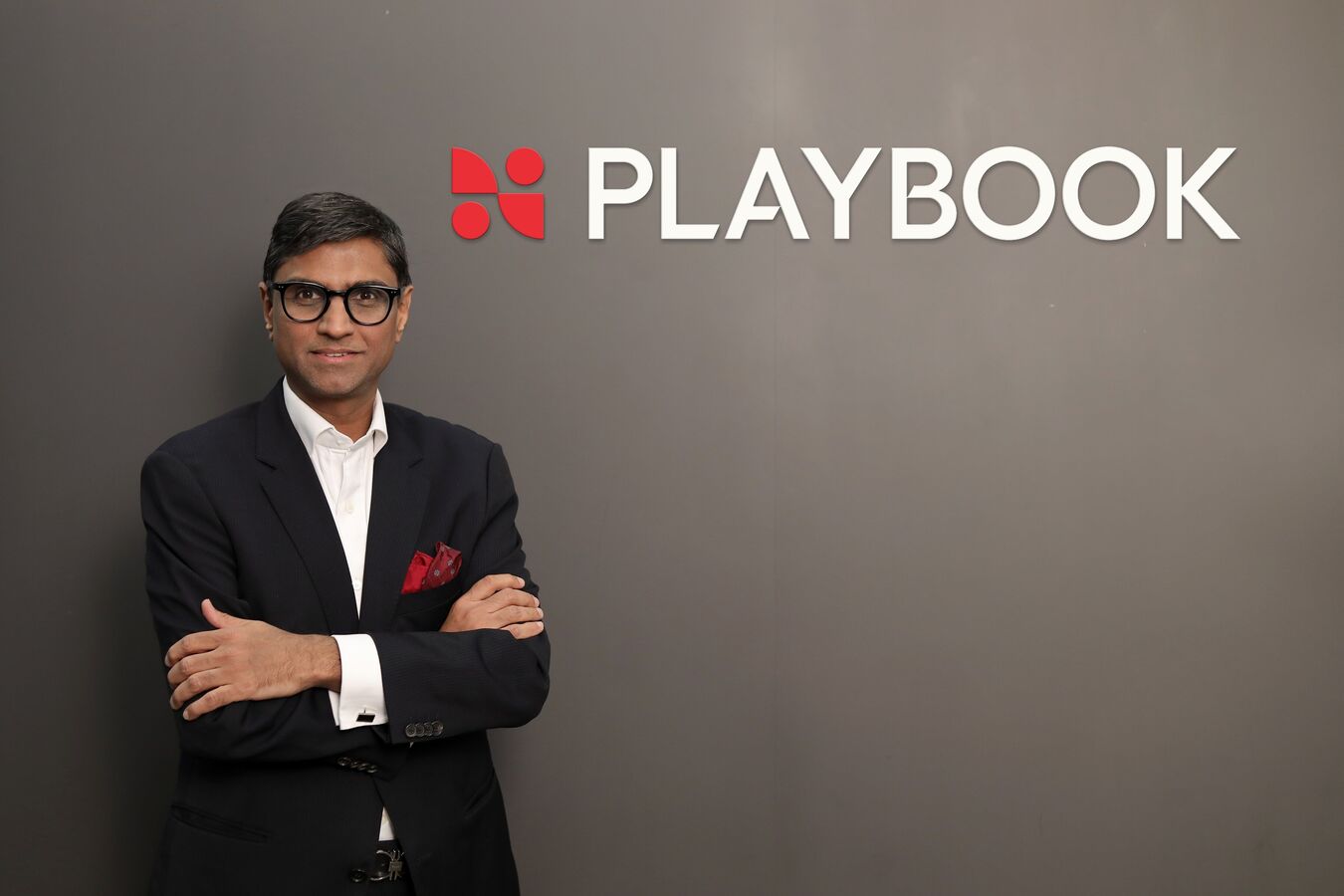Including the green shoe option, the investment firm, founded by Choudhury, could raise another $120 million from established global investors from Europe, the United States, the Middle East and India.
Choudhury, who spent around five years at Reliance Jio, was part of the Indian conglomerate’s management team till 2022. During his tenure, he headed several verticals including e-commerce, telecom, media and fintech. Prior to this, he served as the CEO and MD of Aimia India, one of the largest data-driven marketing companies.
Playbook Partners is managed by other operating partners including Manish Choksi (Asian Paints), Aakash Chaudhry (Aakash Education) and Milan Sheth (ex-Automation Anywhere), who have also run and grown companies.
Choudhury brings nearly two decades of experience in investing in early and late-stage startups, both personally and institutionally. He also runs his family office, Pivot Ventures, through which he has invested in companies such as Curefoods, Exotel and Khatabook. His portfolio includes other unicorns and exits such as InMobi, MiterFractal, Nazara, Policybazaar and Rapido.
Investment strategy
The Playbook Fund will invest in growth-stage technology companies in large prospective markets that have significant scale, healthy operating margins, and high growth. With an average investment size of $10-20 million, the fund will make approximately 15-20 investments across various sectors including health tech, SaaS, fintech, e-commerce, and supply chain.
The fund will have a mix of primary and secondary investments and will focus on stages between Series B and D. “We are already looking at 4-5 companies very actively and are in advanced discussions,” Choudhury said without revealing any names.
Growth capital is a type of private equity vehicle that takes a minority stake in mid-sized or relatively mature companies to help them expand their business operations. This investment vehicle aims to fill the gap between private equity and venture capital and is typically targeted at companies that are already profitable.
In an interview with MintChoudhury noted that the Playbook fund will typically focus on those companies that, on average, record ₹Between Rs 100-200 crore in revenue with a clear product-market fit and a demonstrated ability to grow with sustainable unit economics. He also highlighted the importance of identifying visionary founders with the ability to create meaningful results in large, addressable markets, especially in cases where investors come in at an early stage. “Ultimately, India is a volume play. The key is to see if a company can deliver affordable products to customers at scale,” Choudhury said.
As for opportunities in the growth stages, “there are plenty if you price them correctly,” he added. Markets have undergone a deep correction over the past two years as companies grow to the valuation they sought during peak funding and actively seek to reduce spending and grow in a more sustainable way.
The Playbook thesis, which is not focused on any one sector, is based on the premise that companies that rely on technology have a greater tendency to scale capital more efficiently. Under the broader umbrella of digital transformation, there are various aspects of a company across its entire value chain, Choudhury explained. “If you’re at the front, there’s commerce, or if you’re in the middle, there’s fintech, and if you go further back, there’s supply chain. Using all of these broader themes in play, you can effectively create solutions or products that will create value both for companies and in terms of investment opportunities.”
Moreover, India’s growing youth population and tech talent are setting the stage for massive disruption and innovation, he said. Historically, technology has been a huge value creator for economies and businesses across the world. “India is still in its nascent stage and has a lot of room to grow from here and global investors are also recognising this,” Choudhury said. These factors have positioned the country as one of the fastest growing powers in the world today, he said. “The situation is changing now… we are increasingly seeing global investors no longer treating India as an emerging economy.”
IPO Activities and Secondary Markets
Investors are also encouraged by the surge in IPOs and activities in secondary markets, which is further boosting the growth sentiment in the country, he added. This can be seen in several new-generation startups such as Nykaa, Mamaearth, FirstCry, Zomato, Delhivery, Unicommerce and Ola Electric, which have gone public in recent times. Other upcoming companies such as Lenskart, Ofbusiness and Swiggy are also expected to tap public markets in the near term.
As far as secondary transactions are concerned, there have been numerous cases in recent times. In June, Singapore state investment firm Temasek and Fidelity Management & Research Company bought Lenscart Business Card shares worth $200 million in a purely secondary transaction.
The year 2023 was a notable one for India as exit value soared by around 15% to $29 billion, accompanied by a rise in exit volume from around 210 to nearly 340 exits, Bain & Company said in its private equity report released earlier this year. India, which plays an increasingly important role in Asia-Pacific private equity and venture capital (PE-VC) activity, accounted for around 20% of all PE-VC investments in 2023, up from 15% in 2018. The report added that this has led to a surge in capital from domestic and global/regional funds that are now diversifying across various sectors and asset classes within India.
Disclaimer:
The information contained in this post is for general information purposes only. We make no representations or warranties of any kind, express or implied, about the completeness, accuracy, reliability, suitability or availability with respect to the website or the information, products, services, or related graphics contained on the post for any purpose.
We respect the intellectual property rights of content creators. If you are the owner of any material featured on our website and have concerns about its use, please contact us. We are committed to addressing any copyright issues promptly and will remove any material within 2 days of receiving a request from the rightful owner.

